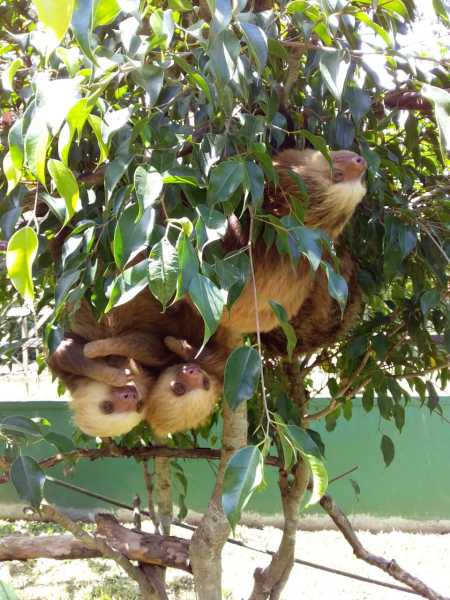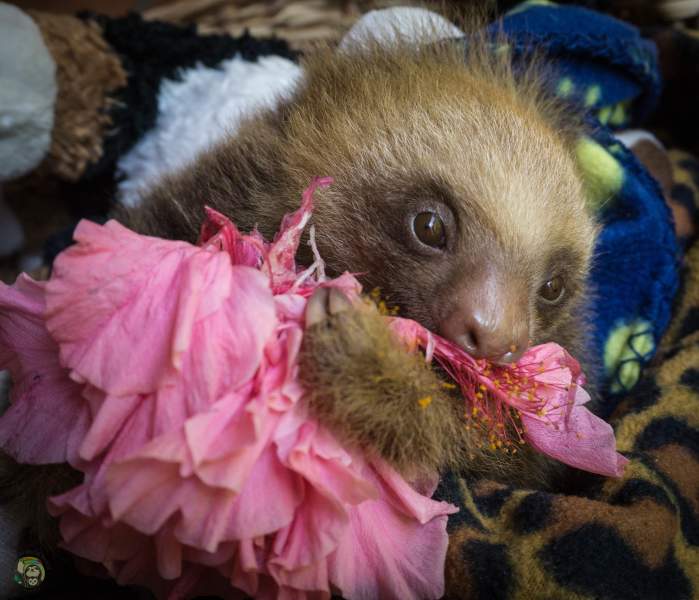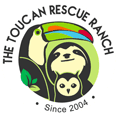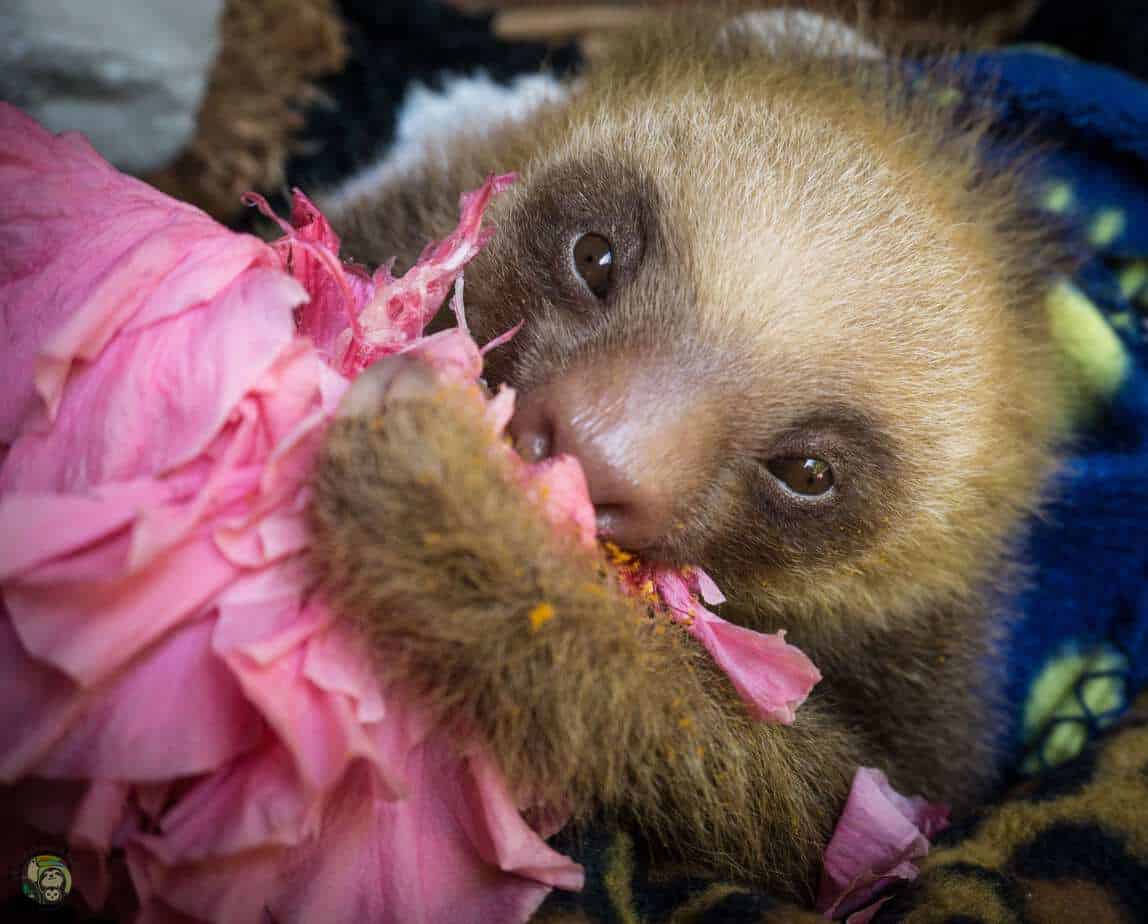There are thousands of cute sloth photos floating around the internet, and we all love to ooh and aah over every one of them. If you scroll through the comments, you’ll notice that a good many of them express a desire to either hold a sloth or have one as a pet. We realize that these comments are brought on by the high cuteness factor and not really based in reality, but they signal a new trend that is popping up here in Costa Rica and other places.
While this recent popularity of sloths is great for programs aimed at learning more about them and their conservation, it has its downside. Sloths are adapted for living high in the tree canopy and only climb down when absolutely necessary. They are solitary creatures and have no interest in interacting with other animals or humans and can stress easily when forced to do so.

At the Toucan Rescue Ranch, we receive many sloths whose lives have been disrupted more and more by human interference. Usually, it’s unintentional, but intention means nothing to the poor sloth.
Most of these are orphaned babies who then join our Saving Sloths Together program. This is a multi-step, two year program that aims at returning all of these orphans successfully back into the wild. While wild sloths are solitary, the newly arrived babies adapt to their new life with other orphaned sloths quite easily. They love to cuddle with each other in the absence of their mothers.
Last November, we received a very cute young sloth who had been living with a local family for less than a week. The story was that a homeless man sold him to a woman for 20,000 colones (about $34). She decided that, while it was illegal to own any native Costa Rican wildlife, she just had to take this cute little fuzzy guy home to her kids. What she didn’t realize is that even those baby sloths with sweet dispositions have very sharp claws and teeth, and they aren’t afraid to use them! She also had no idea what to feed him and ended up giving him a diet that gave him horrible diarrhea. Being quite young, he also cried day and night, sounding like a lost lamb.
Less than a week into her ordeal, she realized that she had made a big mistake and called wildlife police from the Environment and Energy Ministry (MINAE). She confessed to her crime and begged them to come get him as soon as possible.
Bon Jovi, as he came to be called, arrived on our doorstep wide-eyed, smelly and begging for constant attention. After his physical exam, we discovered that he was full of parasites, and therefore couldn’t join the other babies until he was healthy. This caused a challenge for us, since he cried for attention 24/7. We ended up having to watch over him as he sat in a tiny fabric baby carrier with a caretaker. When he would finally calm down, we placed him with his favorite plush toy into a blanket filled tub, gave him a hibiscus flower to eat, placed a blanket over the tub and tiptoed away.

Being a very sweet little guy, he assimilated easily into the group of other babies and with them, continues his journey toward being a wild sloth once again.
— Denise Gillen is a Sloth Nanny at Toucan Rescue Ranch.

This article was produced by The Toucan Rescue Ranch. The Toucan Rescue Ranch specializes in helping wild animals recover so that they can be reintroduced into the wild. For more information or to donate, visit the Toucan Rescue Ranch website.






